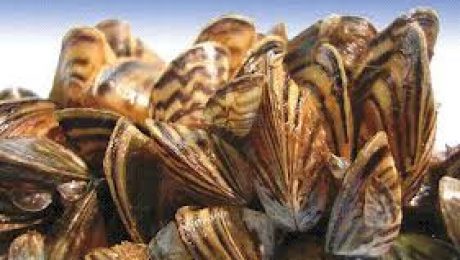While invasive zebra mussels consume small plant-like organisms called phytoplankton, Michigan State University researchers discovered during a long-term study that zebra mussels can actually increase Microcystis, a type of phytoplankton known as “blue-green algae” or cyanobacteria, that forms harmful floating blooms. Zebra mussels can filter out the Microcystis with other particles, but then they spit
What effect do blue-green algae have on you or your loved ones? There’s a way to help you figure that out. During the algal bloom problems of 2018, many people reported respiratory issues and health concerns as the green gunk built up. The CDC is starting a new study on the health effects of cyanotoxins.
Efforts to restore Georgica Pond are proving to be successful thanks in part to the help of an aquatic weed harvester. Georgica Pond has been invaded by toxic cyanobacteria, or blue-green algae, in recent years, which can cause serious health problems. For the second consecutive year, the foundation has leased an aquatic weed harvester to
Blue-green algae, technically known as cyanobacteria, are microscopic organisms that are naturally present in lakes and streams. Typically present at low number, blue-green algae can quickly become abundant in warm, shallow, undisturbed surface water rich in nutrients like phosphorous and nitrogen. Some blue-green algae produce toxins that could pose a health risk to people and




